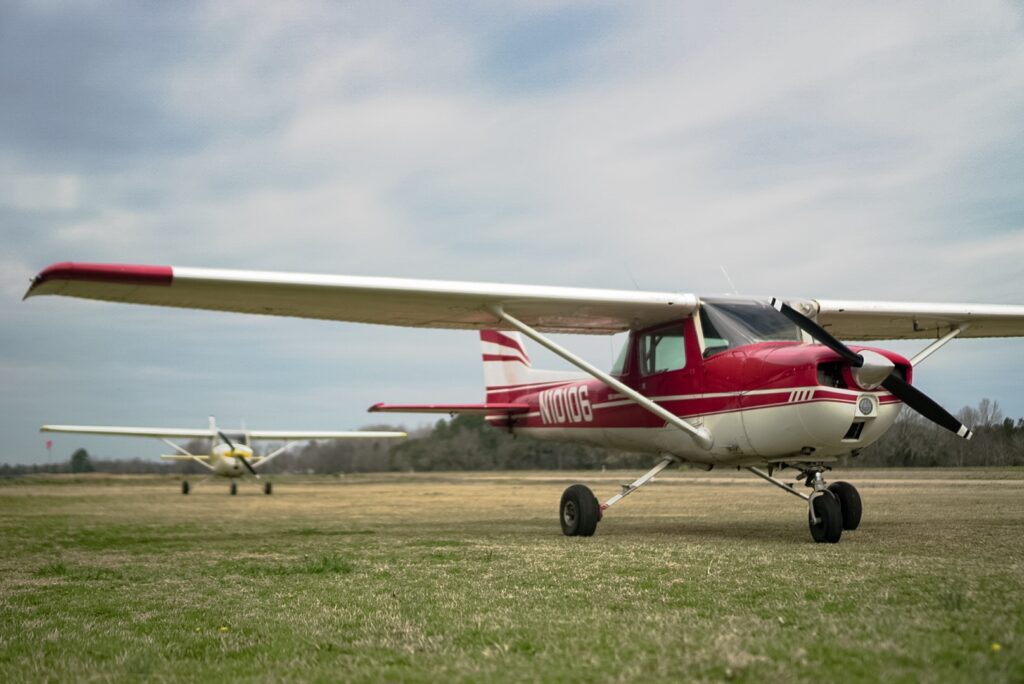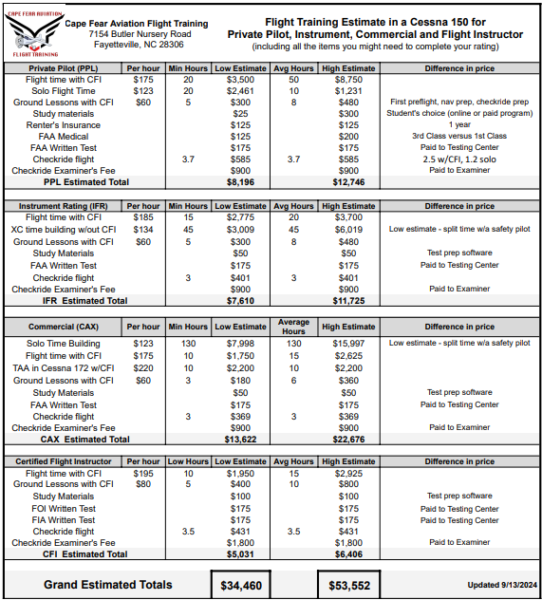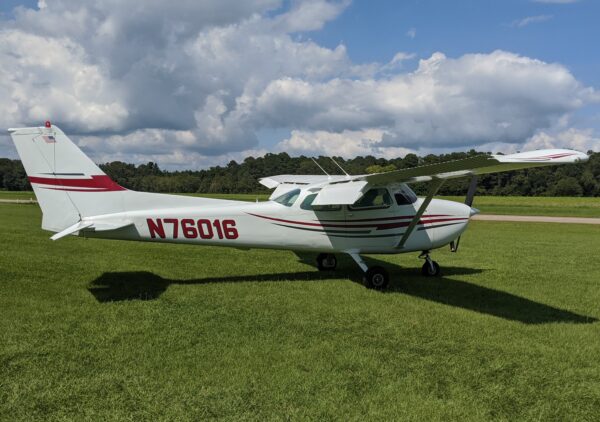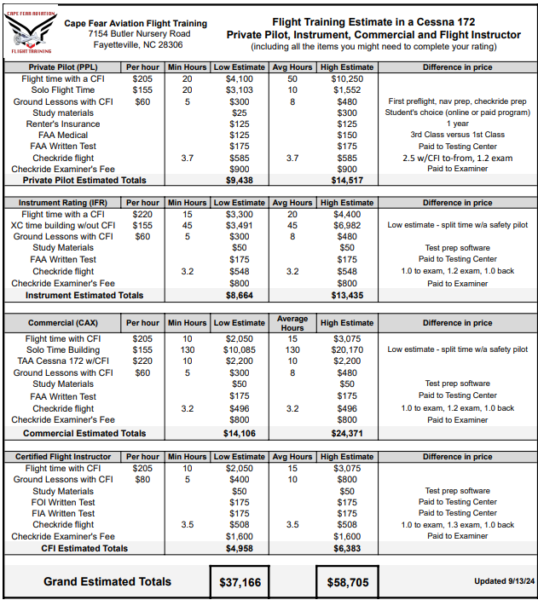Starting Your Private Pilot Training
The majority of pilots in U.S. are Private Pilots, and all pilots who go on to make a career out of flying start out as Private Pilots. While a Private Pilot cannot fly for compensation or hire, they can carry passengers so long as they have the appropriate flight experience and training.
Less than 1% of the U.S. population holds a Private Pilot Certificate, and just by visiting this website, you're taking the first step toward joining this very exclusive group of people! Training to become a Private Pilot can be challenging, but with the help of our Certificated Flight Instructors, you will enjoy each lesson, have fun on every flight, and be a welcomed member of our school.
What Are the Eligibility Requirements?
- Be 16 years of age to become a Student Pilot.
- Be 17 years of age to become a Private Pilot.
- Be able to read, speak, write, and understand the English language.
- Be a U.S. citizen or receive clearance from the TSA under the Flight Training Security Program (FTSP).
- Hold at least a third-class medical certificate.
- There are two doctors in the local area where you can get this medical certificate:
- Dr. Desai, 1309 Medical Dr, 910-437-5130
- Dr. Geiger, 810 Elm St, 910-321-0356
- There are two doctors in the local area where you can get this medical certificate:
What Are the Steps to Become a Private Pilot?
To become a Private Pilot, you must complete the following:
- An aeronautical knowledge exam, administered by the FAA
- Pre-solo training with an authorized instructor
- Solo training
- Cross-country1 flight training
- Solo cross-country1 flying
- Practical test preparation
- Practical test (aka. checkride)
What Aeronautical Experience is Required?
At least forty (40) hours of flight time, including:
- at least twenty (20) hours of flight training from an authorized instructor, including:
- at least three (3) hours of cross-country1 training
- at least three (3) hours of night flight training, including:
- a cross-country flight over 100 nautical miles total distance, and
- ten (10) takeoffs and landings to a full stop
- at least three (3) hours of flight training by reference to instruments
- at least three (3) hours of flight training with an authorized instructor within two (2) calendar months prior to the date of the checkride
- at least ten (10) hours of solo flight time, including:
- at least five (5) hours of solo cross-country1 time, including:
- one solo cross-country1 flight of 150 nautical miles total distance with full-stop landings at three (3) airports
- three (3) takeoffs and landings to a full stop at an airport with an operating control tower
- at least five (5) hours of solo cross-country1 time, including:
Training in a Cessna 150


Training in a Cessna 172 or Piper Warrior


1 For the Private Pilot Certificate, the FAA defines cross-country flying as any flight that includes a landing at an airport more than fifty (50) nautical miles straight-line distance from the original point of departure.
2 Examiner's fees are paid directly to the examiner, written test fees are paid directly to the testing center, medical exams are paid directly to the doctor, books and study materials are purchased separately and have nothing to do with Cape Fear Aviation Flight Training.
3 Costs are based on forty (40) hours of flight training. The national average to obtain a Private Pilot Certificate is 50-70 hours of flight training. Source: Aircraft Owners and Pilot's Association.
Interested in flying with us?
Stop by every day to visit us at Gray's Creek Airport
7154 Butler Nursery Road, Fayetteville, NC 28306
To get to the flight school, turn onto the gravel driveway and follow that to the left, around the hangars, and park in the grass. You'll see the sign for the flight school. Come on in!
